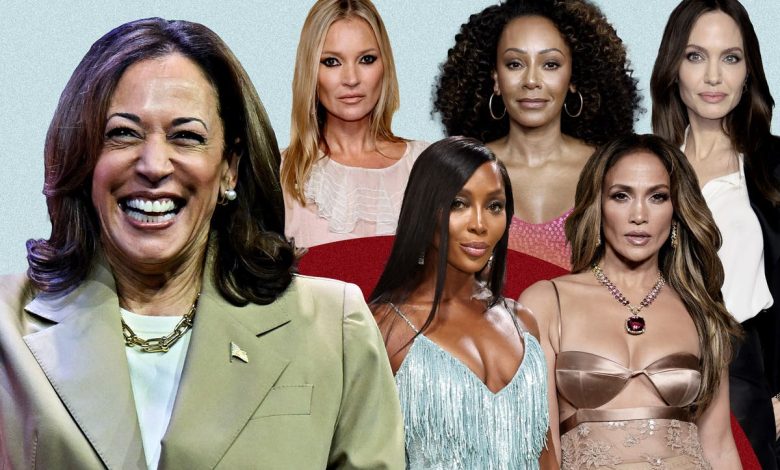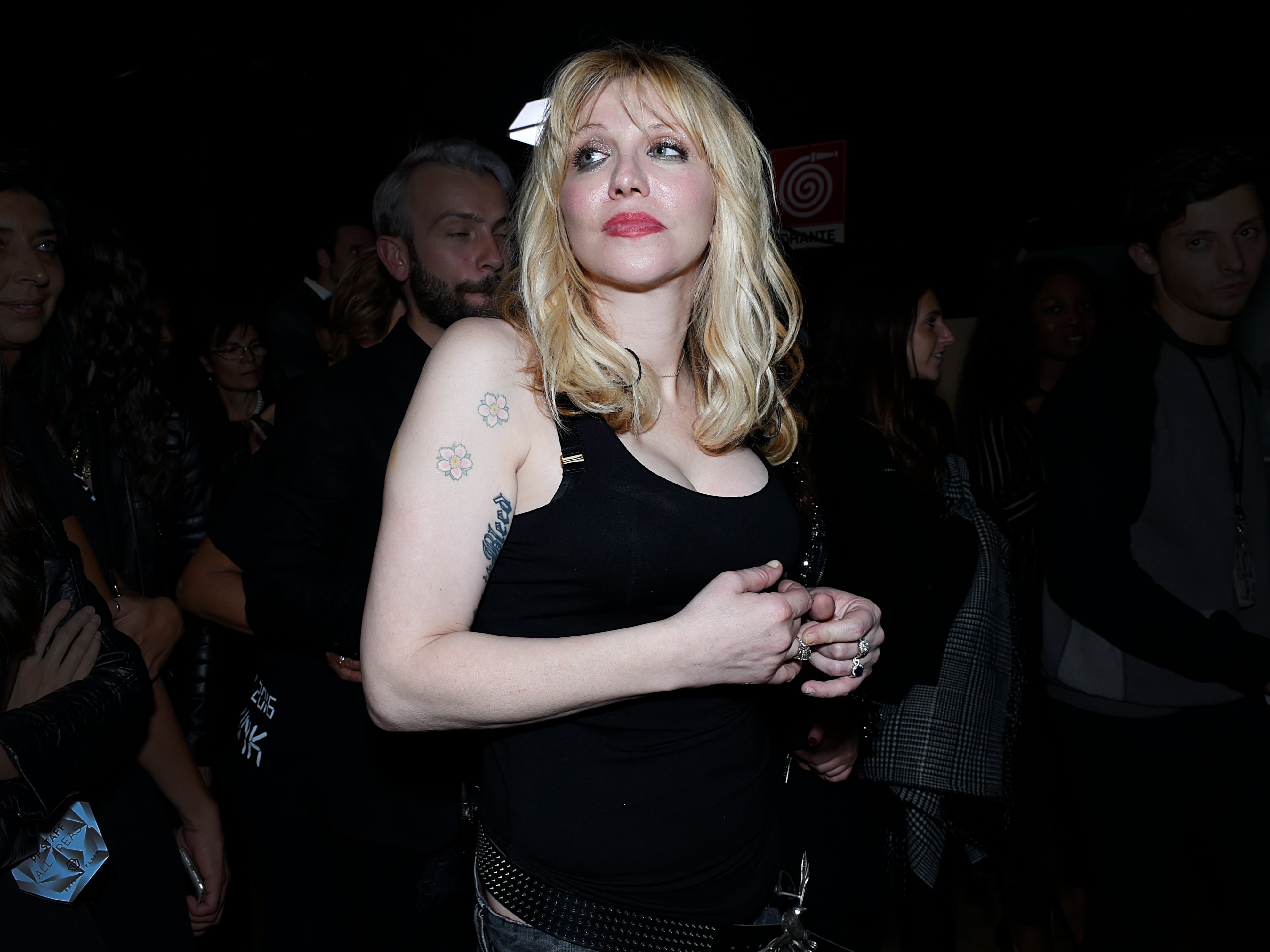Kamala Harris identifies as Gen X – and, believe you me, you really don’t want to mess with us

Kamala Harris is apparently keen to be seen as the new Gen X broom to sweep out the Boomers that have dominated American politics for four decades. Born in 1964, she misses the official start year for Generation X (which spans from 1965 to 1980) but in these times of self-identifying, it’s all about passing and Harris looks pretty Gen X to me.
In 2018, Kamala Harris, then a senator, asked Brett Kavanaugh, Donald Trump’s right-wing nominee for the Supreme Court, a perfectly reasonable question about reproductive rights. “Can you think of any laws that give the government the power to make decisions about the male body?”
After much fudging, Kavanaugh admits that no, he could not. It was a stealth move by Harris. Still, it didn’t stop Donald Trump from describing her as, “extraordinarily nasty”. And then, this week, as a lunatic. But, do you know what, I can’t imagine that it bothered her one bit. Why? Because Gen X women are about as tough as they come.
In The Future Laboratory’s influential annual Generation report published earlier this year, the authors describe X as, “Sceptical, fiercely loyal, cynical, independent in spirit… with a preference for equal, honest, two-way conversations.”
The Republican mudslinging aimed at Harris is likely to intensify until the election in November, but those comments won’t dent her Gen X armour. As a fellow childless Gen Xer, I momentarily felt stung by JD Vance’s malevolent comment that she was a “childless cat lady”; I was “triggered” as a younger person might say.
Except, beyond that first sting, I wasn’t actually, because the other trait of Gen X women is that we are wilful in not giving a damn about what anyone else thinks about us.
We started our careers in the not-quite-PC Nineties office environment where we learnt to get by with grit and eye-rolly patience. It wasn’t Mad Men bad, but certain older male bosses enjoyed ogling and the odd bum fondle and if their hands didn’t stray, their language certainly did.
There were no “safe places” for us. You created a safe space by cultivating toughness. If something offended you, you dealt with it. Rightly or wrongly, that’s just the way it was and what Gen X women had to do to get on.
While some of us had first-wave feminist mothers, many of us didn’t, our mums were bright, but stayed at home or became secretaries when, in another time, they would have been running the company. This absence of significant role models meant we muddled through and became the first generation for whom working was entirely normal and we did it with kids when we had them. Although, many of us didn’t. One in four graduates born in 1970 is child-free.
Duvet days were a glint in the eye of someone in Finland. Coming of age when home computers and wifi weren’t even a thing so working from home wasn’t even part of our imagination, never mind conversation. Hell, we weren’t even allowed to leave work on time to get home. I’m not saying it was better, or desirable, more that the fire that forged us was hot and it made us Xers steely which explains why, as bosses, we are seen as demanding.
Harris has had the “difficult boss” accusation. But while we can be hard (we had it drilled into us, we didn’t know any other way), we are awesome with it. Harris dresses very Gen X for the office, with armour-plated mannish suits, shirts, and symbolic masculine dressing pulled off with an easy style. She was happy to go on the cover of American Vogue wearing a pair of sneakers. Gen Xers grew up with an ability to flex their cool.
Our culture demanded we take the hits. We had absolutely brutal bullying tabloids and cruel and sexist comedy. You might have been at university studying law, but Benny Hill was still chasing around behind women in bikinis as prime-time entertainment. I mean, we kids in the UK had Jimmy Savile held up as our apparent saviour.
We were forged in a crucible of benign neglect at best. In the Seventies, it was perfectly acceptable to smack a child with hands, slippers or belts. And that was in school as well as at home. Divorce figures were high. Child welfare was low. Neurodiverse, what? Kids didn’t have issues, they were just naughty.
We didn’t have hashtags for anything, because social media didn’t exist. Instead, we spent all our time working hard and partying harder. In fact it’s a toss-up between what’s more likely to kill us now most of us are in our fifties or getting there. The cigarettes and caning it, or our “heroic” attitude to working that is now seeing our generation burning out in huge numbers.
Gen X are not sober-curious, as the San Francisco Chronicle exclaimed in 2020. “Kamala Harris, the only major candidate who drinks booze.” Our time was Cool Britannia when drinking and taking drugs was just part of the scene. And we didn’t stop when we got older either, with a recent study finding that about 51 per cent of those above 50 may be consuming alcohol at a level that could damage their health, with more than 4 million having in excess of four drinks in one sitting at least once a week.

But we also have a habit of skidding off the rails and then getting right back on track again. Gen X women are known to bounce back from humiliation and disaster without complaining: Courtney Love, Kate Moss, Mel B. When Winona Ryder went on a shoplifting spree, and got caught, she went on to achieve minor icon status for it. Jennifer Aniston has toughed out the curiosity in her love life and ovaries without ever playing the victim card.
Much has been made of Kamala Harris’s word salad. But we like to talk. With no mobile phones widely in use for most of our early adult decades, we are the last generation to truly engage in conversation. Reconciliation, and resolution, were achieved verbally, not inflamed by an exchange of mean social media posts or conversations on Slack. Talking is our superpower. IRL is our environment.
We don’t shy away from confronting situations and feel there is nobility in saying what we think to someone’s face. It’s why many Gen X are seen as being aggressive, but it’s just us being honest with our feedback. The good thing is we don’t hold grudges or care much for bitching. Once it’s out of our system, we move on.
Studies show us suffering from similar levels of stress, though it does not translate into as much anxiety as younger generations. Generation X were not parented by helicopters who zoomed in at any upset. Being the generation who truly straddled the analogue and digital worlds, we are fast to adapt. Change doesn’t knock us off our A-game.
We walked to school. Rode our bikes all day, without helmets. We even had a TV show that told us to “switch off the telly and go and do something more interesting instead”. We were latchkey kids, told not to talk to strangers, then sent out to play on the street, literally.
As a generation, we’re only 31 per cent of the global population. Known as the “sandwich gen” we stand in the shadow of Boomers and Millennials who busy themselves with fighting out the culture wars. But we’re there. Quietly watching. And we’re laughing, because while we are treated as not important and seen as the “Forgotten Generation”, we’re now in charge.
Forget us at your peril.







